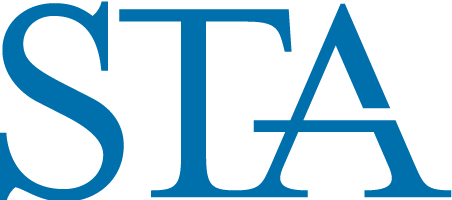It’s an old Wall Street adage, a promotion comes one year later than expected and the loss of a job happens one year sooner. In our industry, like so many others, the timing between when you expect something to happen and when it actually does is often not in sync with those who make these type of decisions. This typically leads to a situation that is unexpected and highly disruptive, as most people are not fully prepared to hear the words, “We’re letting you go.”
The “Before”
This past October STA announced a new initiative called STA Job Re-entry, or STAR, which assists individuals who have been displaced from their job and are seeking re-entry into financial services. Among STAR’s Core Actions is to provide resources and education to best prepare for an unexpected job loss. We believe there are practical and meaningful steps that individuals can take to ready themselves for a job loss situation. These steps should improve one’s ability to rebound more quickly and land on firmer ground sooner.
We hope that you never wind up in a situation where you need to rely on the helpful tips below but if you do, we hope you find them insightful.
Save early and avoid debt
You never hear anyone express remorse about having saved too much. Whether it’s a 401k or a rainy-day nest egg, saving is never a bad idea. People who learn to save early in their careers fare better when facing a job transition. Savings allow you to be more patient and less frantic. It also helps maintain a healthy mental attitude, which will naturally show through during the job search process. Debt, on the other hand, conveys the opposite. Overextending yourself with debt will not only quickly deplete your bank account, it will also deflate the courage and confidence you need during your transition. Manage debt responsibly.
We believe there are practical and meaningful steps that individuals can take to ready themselves for a job loss situation. These steps should improve one’s ability to rebound more quickly and land on firmer ground sooner.
Relationships: Who’s your first call?
People need support networks to strive in life, especially during times of distress. The loss of a job is certainly one of those times. During a transition, your support network is most likely a combination of people who are close to you, both personally and professionally. Maintaining healthy relationships and support networks require effort, so stay in touch and stay active, meaning be present for those who might need that LinkedIn recommendation or that email introduction from you now; you might need the same from them later. In particular, think about that person in your life who would be your first call in the event you lost your job. Keep them especially close.
Create a hot DR site
Disaster Recovery, or DR, is a component critical to every organization’s ability to combat both natural and manufactured disasters, particularly within financial services. An effective DR site is one that maintains a combination of physical space, available resources and proper training. Organizations that keep their DR sites “hot” (i.e., having employees work there under normal, non-crisis conditions) typically respond faster and adapt to the situation better compared to those where employees are walking into a DR site for the first time during a crisis.
This same concept applies to you as a working professional. You should already have in place a personal DR site with the same attributes noted above: space, resources and training. In today’s high tech world where smart phones are indispensable and free content is all around us, obtaining space and resources may not be an issue. However, the ability to use those resources may prove to be problematic if you are not trained on how to use them or they are not current. Basics like maintaining contact information; creating a LinkedIn profile and resume; and, subscribing to curated industry newsfeeds and research from third parties are all easy to do but they take time and possibly a learning curve to master. In that moment of having just lost your job, learning new tasks, even simple ones, can be overwhelming. Keep your personal DR site, be it your home office, phone or laptop, hot and up to date.
In that moment of having just lost your job, learning new tasks, even simple ones, can be overwhelming. Keep your personal DR site…hot and up to date.
Be your own brand
The industry we work in and the organizations we work for do not define us. Those are just two factors on a long list of others that go into making us who we are. How long it takes an individual to fully appreciate and understand that depends somewhat on their own sense of self, or brand. Sometimes it takes the loss of a job to be able to really reflect on who you are, catalog your accomplishments, take pride in your successes, define your brand. Think what you want of influencers on social media, but there is value in self-branding. As you go through the interview process, prospective employers will not only be interested in your qualifications and skillset, they will want to get to know you, as an individual, to determine if you are the right fit. Be your own brand.
